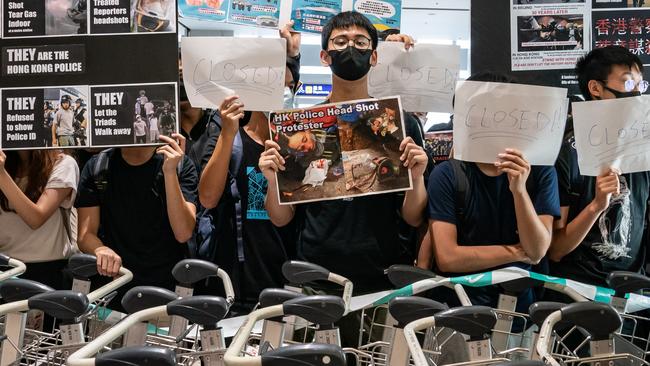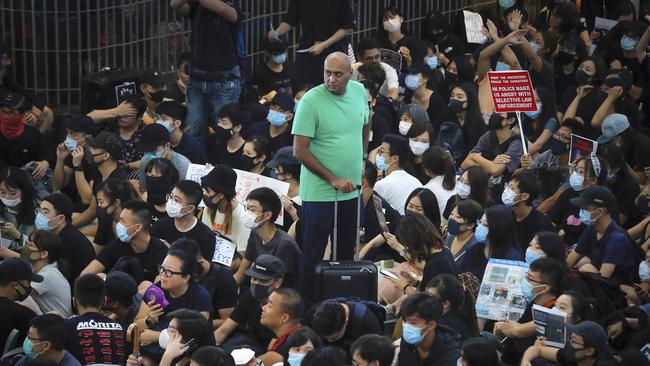Hong Kong: Fears of a new Tiananmen no longer absurd
The rapid evolution of Chinese rhetoric, from silence to terror warnings, has all the hallmarks of laying the ground to justify an intervention.

A road of no return: that is where a tear-stained Carrie Lam, Hong Kong’s chief executive, warned that the territory was heading after almost three months of protests.
On the other side of the border with mainland China, armoured troop carriers and other military vehicles were massing, filmed by Chinese state media and broadcast across the nation amid warnings that Hong Kong was threatened by foreign-backed terrorists.
The rapid evolution of Chinese propaganda about Hong Kong is cause for concern. As the protests have grown into popular revolt it has shifted from a complete blackout of coverage of peaceful protest to a focus on violence, rioting and warnings of the “black hand” of American interference. A major crackdown is hinted at more strenuously every day.
MORE: US Navy denied access to Hong Kong | Gottliebsen; What is our HK plan? | Commentar y: Behind Beijing’s push
Beijing might have hoped that the protests would fade when Ms Lam suspended the controversial extradition bill that kicked off the demonstrations. But despite her declaring it dead, it remains on the shelf, with President Xi of China unwilling to send the message that protest can work.

In the meantime the protesters’ demands have grown. There are calls for direct elections which goes well beyond the freedoms, now under threat, that were guaranteed to Hong Kong on its handover from Britain to China in 1997.
Beijing is caught. Faced with a protest movement in 2014, Hong Kong’s Beijing-backed leaders waged a war of attrition that put a lid on unrest until this year.
A similar effort is under way now, with scores of protesters facing up to ten years in jail on colonial-era charges of rioting.
It is not clear that the authorities will stop there. The picture that state media is painting in China has all the hallmarks of laying the ground to justify an intervention.
However, the political and economic risks for Beijing are huge. Hong Kong is ranked as the most free economy in the world and its prosperity relies on independent legal jurisdiction.
Still, Hong Kong is no longer uniquely valuable to China, as it was before Shanghai and Shenzhen emerged as financial centres.
Fears of another Tiananmen are not absurd.
The Times



To join the conversation, please log in. Don't have an account? Register
Join the conversation, you are commenting as Logout